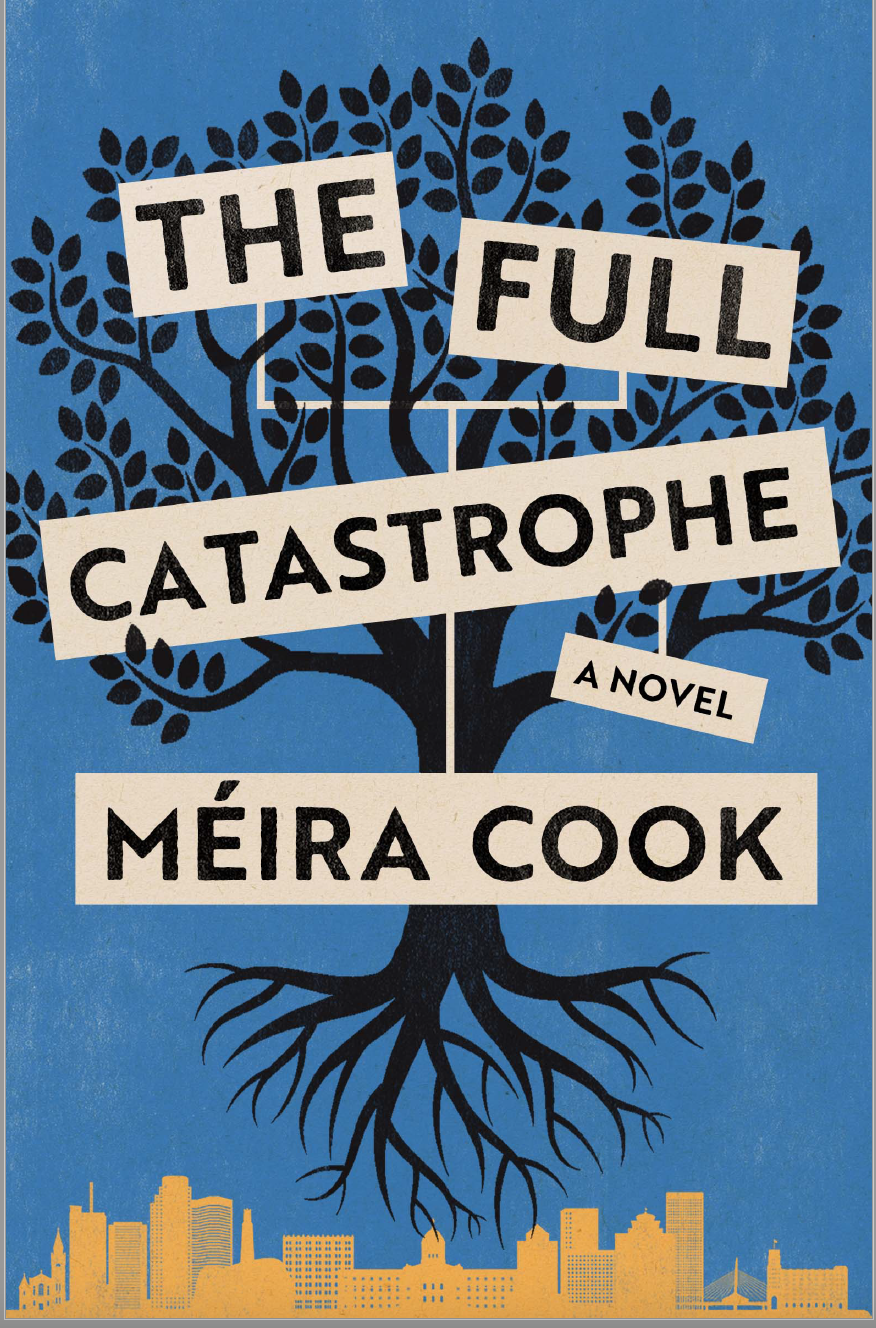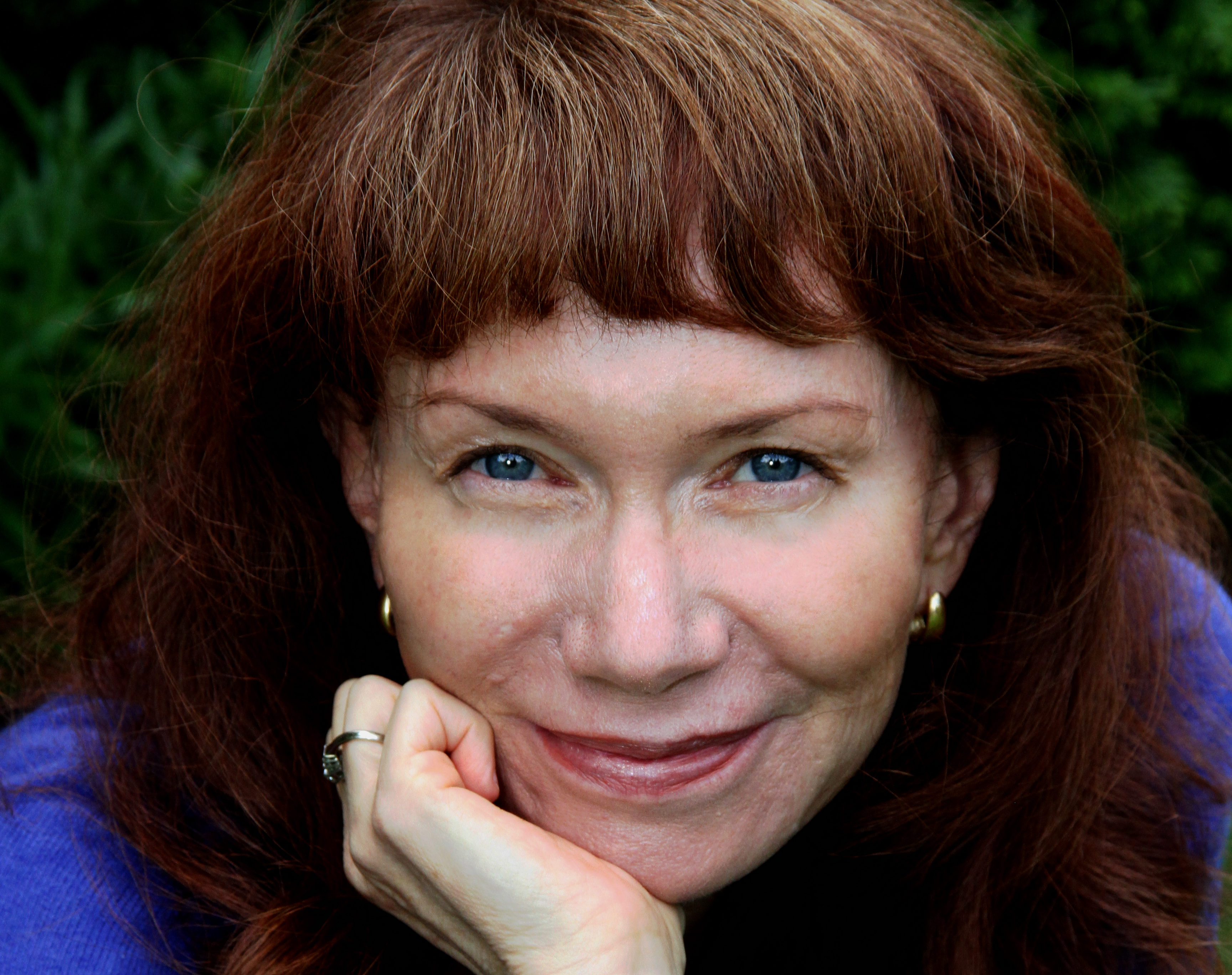Méira Cook’s most recent novel is a love story. But it’s not the kind you may think.
The Full Catastrophe is the story of an aging Holocaust survivor, his optimistic grandson and learning to embrace who you are.
The book, which Cook considers to be a crossover story for teenagers and adults, focuses on Charlie Minkoff, a 13-year-old Jewish boy with intersex traits. He lives in Winnipeg’s Exchange District with his mom, an eccentric artist who is rarely home. At school, he’s mostly friendless and often bullied. Charlie spends most of his time with his best friend, his zayde Oscar, a 90-year-old Holocaust survivor with an affinity for Pirkei Avot (Ethics of the Fathers).
When Charlie learns his grandfather never had a bar mitzvah because of the Holocaust, the two end up organizing a joint ceremony, a b’nei mitzvah. The novel tells the story of their unique bond, and the quirky characters who form their community.
For Cook, the relationship between Charlie and Oscar was a vehicle to write about tolerance, acceptance and religion.
“I wanted to write about the love between these two characters, who are each other’s best friends and lifelong confidants, and how surprisingly tolerant Oscar always is towards Charlie [and his unique body] given what we understand to be the kind of stodginess of old age,” the award-winning Jewish writer said in an interview with The CJN from her Winnipeg home.

The concept came to Cook when an observant Jewish friend, who is transgender, confided in her about his own experiences, she said.
When Cook’s friend told his rabbi about his transition, he said the rabbi had been very welcoming of him as a congregant. He was allowed to sit in the men’s area of the sanctuary, but was barred from reading the Torah—a privilege reserved strictly for men in traditional Orthodox observance.
“He was coming down on the side of the law, but in a seemingly hospitable way,” Cook noted. “I was fascinated by how Orthodox Jews applied such a complicated set of legal criteria to issues of gender and identity.”
As a heteronormative woman, writing about intersexuality was not something Cook took lightly, she said. It required a great deal of care and research.
“I was aware of this sense of being, in some ways, an intruder,” Cook said. “But I thought it was important because I wanted to write about intersexuality in a way that wasn’t spectacular.”
“I was writing about someone who is trying to find their own story. And their story isn’t necessarily the one that everybody wants them to tell, which is the story about their intersex traits, it’s the one that they have to discover.”
As a result, The Full Catastrophe was seven years in the making.
“It’s months and years of trying to work out plot connections and character consistencies,” she said. “But suddenly, every so often, the writing takes you up like a wave.”
It’s a labour of passion and a great deal of hard work, and it’s what Cook, who has been a published author for nearly 30 years, loves most.
“It brings me the greatest peace and ease in the world.”
The novel is, in part, a commentary on the diversity that exists within Winnipeg’s Jewish community. It’s something Cook— who was born and raised in Johannesburg before moving to Canada in 1991— is able to uniquely observe as a self-proclaimed outsider.
“If you’re not someone who’s lived in Winnipeg all your life and who knows everybody, then you can sort of stand back and watch things,” Cook said of her adopted hometown. “I hope I watch them in a loving and creative way.”
The Full Catastrophe is also somewhat of an ode to Winnipeg—and Winnipeggers. The feel-good story is brought to life by a host of vibrant characters including Charlie’s solitary mom, an eager teacher, his elderly neighbors, and even an annoyingly lovable dog.
“To me, this never seemed like a boring prairie town,” Cook mused. “Winnipeg is a very generative city for writers, artists and musicians. It’s quite gritty and glittery and it has all these unusual and quirky ways of being.”
Setting the novel in the Exchange District also has underlying symbolism.
“The Exchange District is a place in transition, a place between renewal and gentrification,” Cook explained. “That’s where Charlie and Oscar came to me, in this particular part of Winnipeg.”
The novel, which is her fourth (not counting poetry), has a subtle throughline with her previous works. Cook’s 2012 novel The House on Sugarbush Road won the McNally Robinson Book of the Year Award and her 2015 Nightwatching won the Margaret Laurence Award for Fiction.
“If I look back on my novels, I see that they’re all about community and how community allows you to become the person you need to be,” the author noted.
Her last novel, Once More With Feeling, also portrayed a Jewish community and featured a bar mitzvah. In fact, it was while writing that book that Cook first became interested in what she calls “the bar mitzvah years,” referring to the years when her three children were invited to bar and bat mitzvahs every weekend.
“As a mother this was a very distinctive time for me,” she explained. “I’d sit in the sanctuary and watch these young people that I had known since kindergarten and elementary school stand there and take on the mantle of their adulthood. It was so moving for me.”
The Full Catastrophe is inspired by the magnitude of these “bar mitzvah years.” However, it’s also infused with lighthearted and humorous moments, which was important to Cook.
“The books that I love are ones that seem to emerge from a sense of honesty and humour and joyfulness,” she said.
“It’s hard to write good humour. It’s a lot easier to write fast-paced, wisecracking, unkind and sarcastic humour. What I tried most was not to look sideways at my characters, I never want to laugh or make fun of them.”
Since releasing the book, Cook’s favorite responses have been from readers who share stories about their own grandfathers, she said.
“I’ve had so many people writing and saying: ‘This Oscar was so wonderful, he reminded me of my dear grandfather,’ or others who say: ‘Where did you get this stuff? My zayde was not like that at all.’”
The author doesn’t usually anticipate who her audience will be. However, she hopes this novel will be welcomed, in particular, by her own community.
“I would just love it to be accepted and honoured by the Jewish community, in the spirit of love in which it was written,” she said. “With love and fondness for the people that I’m writing about.”
